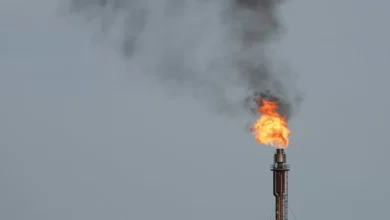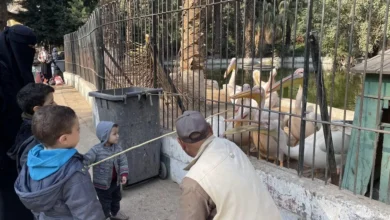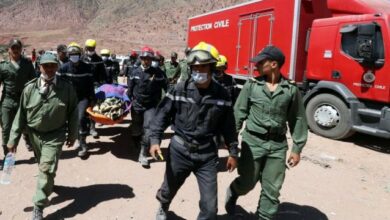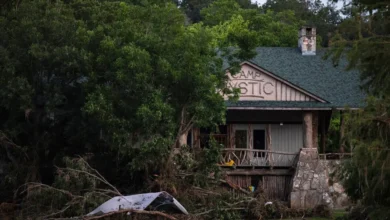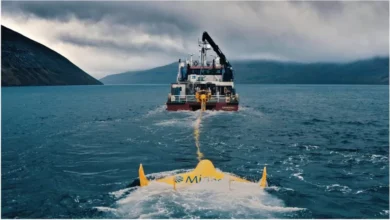Land grabs and vanishing forests: Are ‘clean’ electric vehicles to blame?
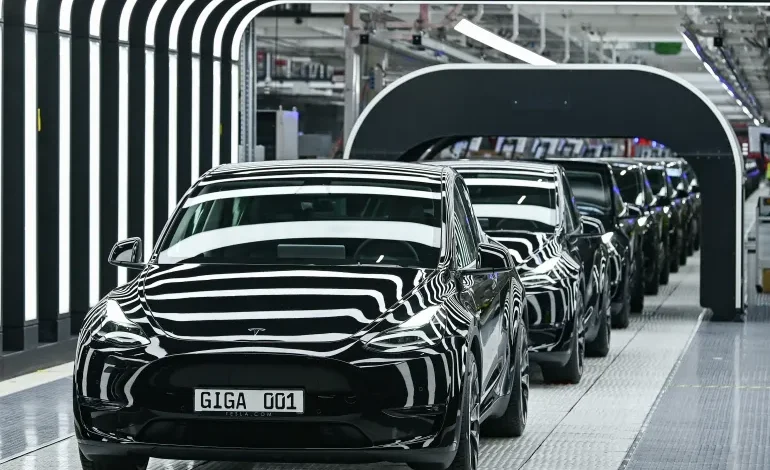
As the push to switch away from polluting fossil fuels and go green with renewable technology becomes more pressing around the world, the popularity of electric vehicles (EVs) has surged. But now, rights groups say that the growth of this industry is wreaking environmental havoc of its own as well as harming local communities in Indonesia, the Philippines and the Democratic Republic of the Congo (DRC).
Demand for EVs was initially slow but orders have tripled in the past few years, with electric cars accounting for 14 percent of total car sales in 2022, up from just 4 percent in 2020, thanks to heightened environmental awareness and a wider choice of cars on offer to consumers.
The transport sector has long been a target for green activists as it contributes to one-sixth of global carbon emissions. But while sleek, battery-powered vehicles produced by companies like Tesla and Ford are being held up as a shining solution to this issue, the EV industry is harbouring a dark side of its own.
Reports from several rights groups in recent months have revealed how the increase in mining of crucial materials like nickel – the silvery-white metal used to manufacture EV batteries – is harming several communities and, ironically, causing environmental damage across Indonesia and the Philippines, which are home to the largest nickel deposits in the world.
Mining watchdogs have also sounded the alarm about damage caused by the mining of cobalt and coltan – also important for EVs – in the DRC.
How are communities being harmed?
Residents living near nickel mining sites on the island of Halmahera in the northern Maluku province of Indonesia say they are being coerced and intimidated by mining companies operating in the Indonesia Weda Bay Industrial Park (IWIP), according to recent findings by Climate Rights International (CRI). The area, one of the largest nickel production sites in the world, is home to nickel mines and nickel-smelting plants which supply international EV manufacturers.
In a 124-page report released in January, CRI alleged that companies mining in IWIP often collude with the police to force landowners in nearby villages such as Gemaf, Lelilef Sawai and Lelilef Waibulan to sell their land or even to leave without any compensation at all. In some cases, community members, many of them farmers, say they have arrived on their land only to see tractors digging it up without their consent.
Some farmers who have contested unfair prices, protested land grabbing or outright refused to sell have reportedly received threats from the police and military. Since the construction of the park started in 2018, security officials have swarmed the area, residents say.
Large swaths of forests are also being cleared for mining in the region, the rights group found. CRI estimates that about 5,331 hectares (13,173 acres) of forest have been taken over for mining activities. Since trees store carbon, removing them means more emissions.
Last year, another rights organisation, Survival International, warned that about 300 to 500 groups of O Hongana Manyawa, or “People of the Forest”, in the area of the IWIP may be at risk of losing their homes if the ongoing deforestation continues.
